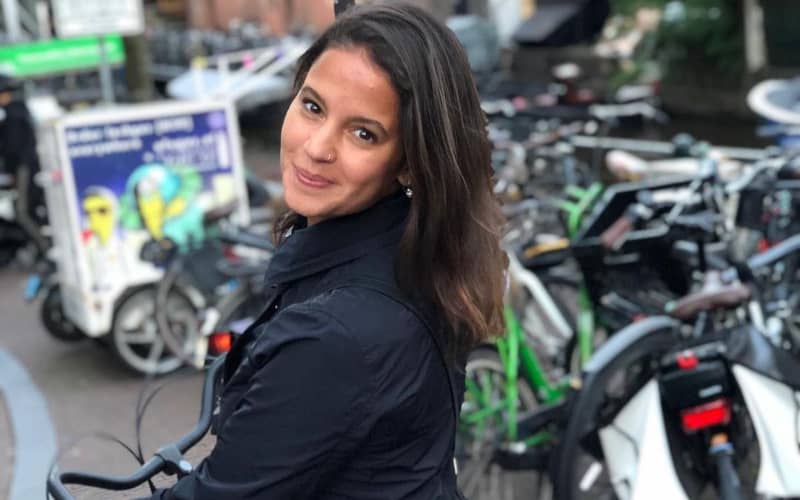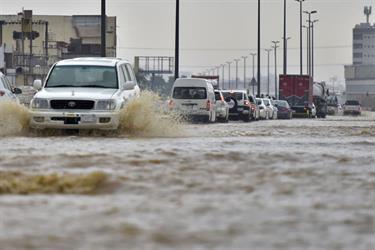Born in 1987 in Amsterdam, the Netherlands, Charifa Zemouri has a small history that has shaped her passion for infectious disease and public health. “When I was little, my mother always talked about ‘don’t bring germs home from the street.’ These tiny creatures that we couldn’t see and that could cause so many diseases fascinated me,” she told Yabiladi.
“I loved how people’s interactions, behaviors, beliefs, culture and traditions evoke disease transmission. I like public health because it concerns us all,” says the Dutch-Moroccan, whose family is from Beni Ahmed, near Chefchaouen.
Science, politics and public health
Her father arrived in Holland in the early 1970s, her mother joined him in 1985. She grew up in an environment where “the world was Dutch”, as well as her “education” and her “life”. “But my home was Morocco. Being Moroccan is my first identity, although in my experience this identity has been a source of problems, discrimination, racism and attempts to intimidate me,” she recalls. “As an adult and in my current life, I still identify as Moroccan and Moroccan-Dutch. We all have to be who we want,” he adds.
Thus, after a master’s degree from the Free University of Amsterdam in 2013, Charifa Zemouri worked in scientific research in different organizations, such as the office of the World Health Organization (WHO) in the Netherlands and the Academisch Medisch Centrum Amsterdam.
In 2020, after completing her doctorate at the University of Amsterdam, the Dutch-Moroccan became, in the midst of the Covid-19 crisis, adviser to the political party DENK (left), founded in 2015 and led by the Dutch. The Moroccan Farid Azarkan. “My work as a DENK adviser in Parliament was very difficult. The men I briefed were easy to work with. However, witnessing the inabilities of other politicians or the Minister of Health was more complicated ”, he explains about this experience.
“It turned out that the policy makers, who claimed to be working on the basis of evidence, were rather driven by their ego. Most of their choices were politically motivated, in anticipation of the election.”
Carifa Zemouri
A quest for scientific independence
This experience has been enriching for the Dutch-Moroccan course. “In a short time, I learned how policies and epidemic management work. I can use all this experience in the future to help politicians or other decision makers on public health crises, taking into account the needs of society,” he believes.
In addition, it is in this sense that he created, in February 2022, his public health and research consultancy, called “Zemouri Public Health Research and Consultancy”. “I have specific skills, knowledge and expertise that can be useful if I work as an independent researcher and consultant. I love scientific research, infectious diseases, public health and connecting science with society and politics. I also like being free and having complete autonomy,” she explains. “I started at the beginning of 2022 and thank Allah because I had great opportunities. The year 2023 looks promising so far with more beautiful works and collaborations,” he announces.
“I see how the quality of my life and work has improved and how much I am appreciated by the people I work with. This is very important to me, to be able to support myself, do work that I love and am effective at, monetize it, provide good work for society and be happy and free. Because you know, we work for a living; we don’t live to work.”
Carifa Zemouri

“Contribute to public health and scientific development” in Morocco
According to the researcher, “there is a great need for critical but fair independent experts, who don’t have to fear losing their funding or their job if they express themselves”. “This is what has prompted some companies and organizations to consult and work with me,” he adds.
On her ties to her home country, the Dutch-Moroccan wants to “contribute to public health and scientific development” in the kingdom. “I visit Morocco a lot. I have insurance so when I die, I will be buried in our village in Beni Ahmed. I hope to be able to live between the Netherlands and Morocco soon,” she says.
Charifa Zemouri also defends his opinion against the media treatment in Holland of the historic feat of the Atlas Lions during the 2022 World Cup in Qatar.
“While the entire MENA region and the rest of the non-Western world were celebrating Morocco’s strong performance at the World Cup, the Europeans and the Dutch in particular were trying to take our happiness away. But if you point it out, like I did, people criticize you.”
Carifa Zemouri

For her, the criticism even violates her freedom of expression as a woman. “As if I, a Moroccan woman, could not have my own opinion, vision and interpretation that is not in line with those of the white Dutch”, she concludes.


